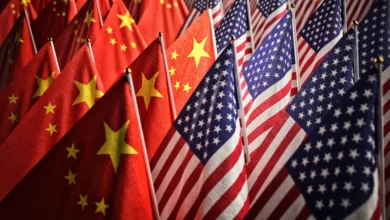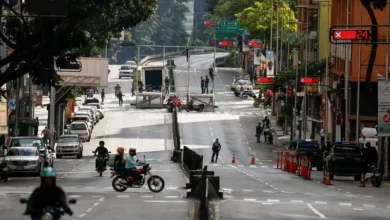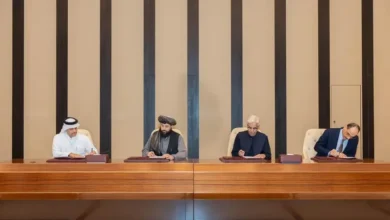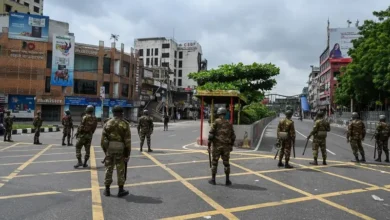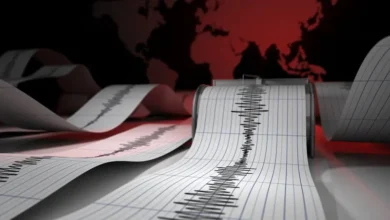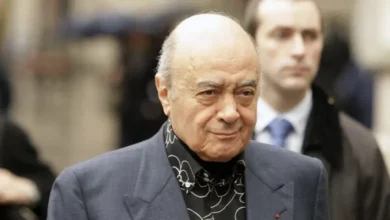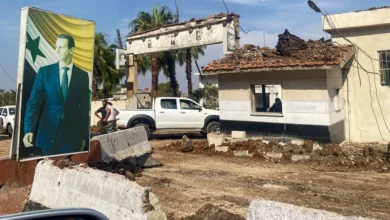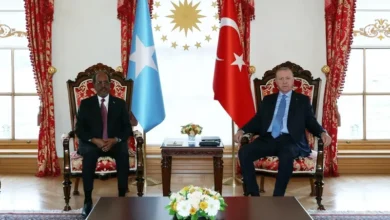‘Almost like people expected this’: Will latest Trump brush affect US race?
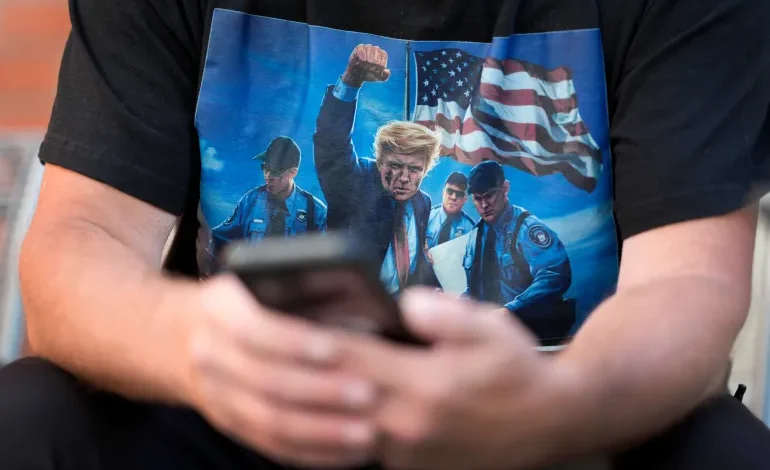
How does an assassination attempt transform a presidential race?
It is a question that United States voters have had to ask twice this election season, with Republican candidate and former President Donald Trump on Sunday facing yet another incident the FBI has said it is investigating as an attempt on his life.
That comes just two months after Trump survived a gunman’s bullet while on stage during a campaign rally.
A day after the latest attack, its implications are far from clear, but Trump’s response has been unequivocal. After a US Secret Service agent fired on the gunman at Trump’s golf resort in Florida, the former president issued a defiant statement, vowing “I will never surrender!” That echoed his previous sentiment in the moments after the July attack in Pennsylvania, in which a bloodied Trump pumped his fist in the air, chanting “fight, fight, fight”.
As in July, Trump on Monday again blamed the second attack on presidential candidate US Vice President Kamala Harris, saying it was a result of Democrats’ “rhetoric” and “lies” that bullets are flying.
It is a familiar response, according to James Davis, a Republican strategist, who said Trump’s campaign likes to remind voters of the July attack, which Trump survived by a matter of millimetres.
“It is kind of a reminder of how close of a call July actually was, how significant it was for so many people,” Davis told Al Jazeera.
That could turn out some key voters in battleground states, a potentially significant boost in an election expected to be decided by just a few thousand votes in key areas.
At the same time, Sunday’s event so far appears to be eliciting a much more muted response than the jolt of the attack in July. That is a reflection of just how normalised the threat of violence has become in a race where the vast majority of voters are deeply entrenched in their party support, Davis said.
“I’ve talked to a number of people in the aftermath, and it’s almost like people expected this. And that’s horrifying,” he added. “The feeling in the air is not even shock. People are talking about this in a more pensive way.”
‘No sympathy bump’
To be sure, Trump did see a political bump in the wake of the July attack. Just two days afterwards, he triumphantly took the stage at the Republican National Convention in Wisconsin.
The attack transformed the event, with supporters in the audience wearing bandages to mimic the one worn by Trump after a bullet grazed his right ear. His campaign promised the brush with death would beckon in a less bellicose, more unifying candidate, even if that vow never came to pass.
To some political analysts, the July attempt all but assured Trump’s victory in November as his then-opponent, President Joe Biden, was lagging badly in the polls after his disastrous debate performance in late June.
But barely a week after the rally shooting – before most high-quality polls on its effect could even be conducted – Biden dropped out of the race. Democrats coalesced around Harris, who saw a surge in support that largely neutralised Trump’s momentum.
Despite the extraordinary campaign disruptions over the summer, polls have again shown the two candidates neck and neck. A recent New York Times/Siena College poll found only a one percent difference in support in the key states of Michigan, Pennsylvania, Georgia, North Carolina and Arizona.
Rina Shah, a political strategist, predicted Trump would not feel a similar phenomenon this time around.
